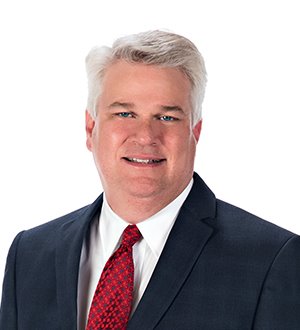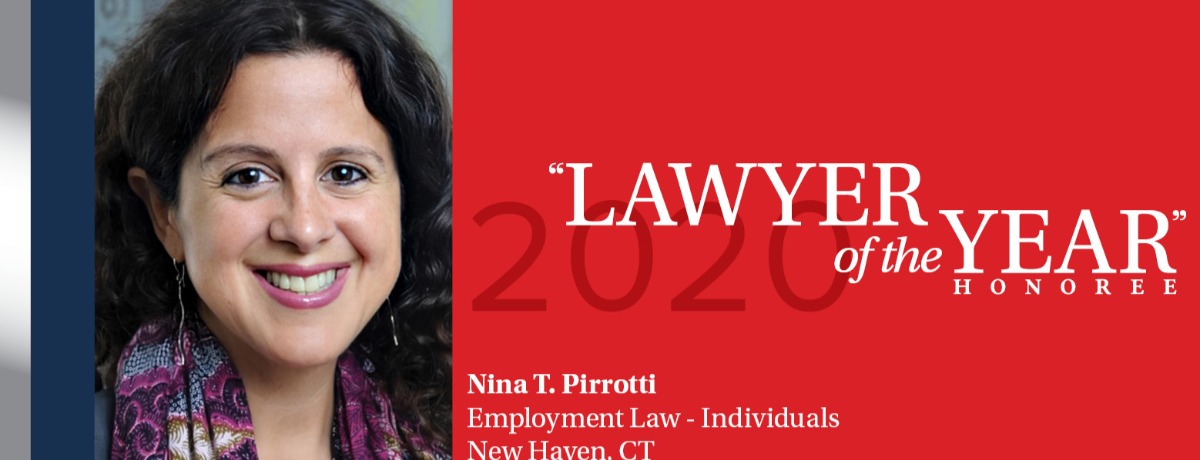Employers' Response to Racial Unrest
The global response to George Floyd’s tragic and shocking death and other recent acts of injustice, including those involving Ahmaud Arbery, Christian Cooper, Breonna Taylor, and Nina Pop, among others, and ensuing protests and riots, amid the economic crisis of Covid-19, has impacted businesses ndirectly or directly. As these current events continue throughout the country, employers may be faced with a plethora of issues that surface in the workplace and should be proactively prepared for a response. Just as the #MeToo movement raised awareness of the prevalence of sexual harassment and gender discrimination in the workplace, the recent events should be the catalyst for a renewd emphasis on preventing racism and discrimination and offer employers an opportunity to show all employees they are respected and supported in the workplace.
In addition, employers may face a myriad of challenges in handling internal complaints and external conduct by their employees. Often, what an employer can, should or cannot do is not always clear. While employees are legally protected from being fired based on discrimination, employers are now grappling with broader issues. Can I terminate an employee based on statements made on social media? Can I discipline an employee for attending a rally? Can I demote a manager because of his or her actions outside the workplace? These are all difficult questions. Often the response will depend on an employer’s policies, consistency in discipline and the facts of each situation.
A growing number of employers are taking action against employees whose conduct outside of work violates their policies or adversely impacts their business. Examples include:
The termination of a PR Executive who posted, while on vacation, on her personal Twitter account before leaving for South Africa: “Going to Africa. Hope I don’t get AIDS. Just kidding. I’m white!”
The forced resignation of a government contractor after she was photographed giving President Donald Trump’s motorcade the finger.
The termination of a worker who authored an internal memo claiming that genetic differences made women unsuited for tech jobs.
The termination of multiple workers who were identified as participating in the Charlottesville riots and shouting anti-Semitic statements, while at least one of them was wearing a company uniform.
While some states (California, Colorado, Louisiana, New York, North Dakota, and the District of Columbia, among others) limit employment actions against employees for engaging in legal activities outside of work, discipline or discharge may still be warranted where the action conflicts with the employer’s policies or business. Caution and consistency are the key.
Below are actions employers should consider in light of recent events:
- A statement from a high-level officer denouncing the recent acts of racism, urging that all employees be treated with dignity and respect, and reminding employees to report any conduct that violates the employer’s anti-discrimination/harassment policy or code of conduct to the company’s Human Resources department.
- Revisit the wording and content of the company’s anti-discrimination/harassment policy and procedure.
- Ensure that the company’s prohibition of racial harassment and discrimination is emphasized. The policy can include specific examples of actions that could be considered racial harassment in the workplace, including brandishing Confederate flags and symbols, swastikas, nooses (yes, there have been cases in this century where nooses were left at the work stations of African American employees), and “friendly banter” that could be perceived as having racial undertones.
- Outline the company’s recognition of employees’ rights to discuss workplace issues, while underscoring the fact that discussions regarding non-workplace issues such as politics, religion or current events are not productive workplace time, can lead to unnecessary disagreements that impact productivity and morale, and are discouraged.
- Include a clearly written statement that employees who violate the company’s anti-discrimination/harassment policy will be subject to discipline, up to and including termination.
- Reiterate the company’s anti-discrimination/harassment policy and require all employees to acknowledge their understanding and agreement to abide by the terms included therein.
- If the company has not recently provided anti-discrimination/harassment training or its training has focused almost exclusively on sexual harassment, conduct in-person (and/or Zoom or other video) training that focuses on preventing all forms of discrimination or harassment.
- Appoint a diversity officer/committee who will address issues of diversity and make recommendations to management on race and gender issues, and to whom employees can address complaints in addition to Human Resources. Consider implementing a hotline to enable employees to make a complaint anonymously if they choose.
- Provide diversity training to employees, particularly managers, to help them understand and celebrate the differences that make your organization successful.
- Respond to complaints (internal or external) by immediately investigating and taking appropriate action. In dealing with outside of work statements/actions, consider the following:
- Do you have a social media policy or a policy regarding off duty conduct?
- Is the employee being critical of working conditions that could be protected under the National Labor Relations Act?
- Is the employee’s speech overly offensive or would it impede the company’s ability to comply with its anti-discrimination/harassment policy or prevailing law?
- Is the employee engaged in or advocating violence?
- Does the conduct or speech cause disruption in the workplace?
- Is the employee representing the company when making the statement (i.e., wearing a company uniform, stating they are employees of the company, etc.)?
- What position does the employee hold?
- How have you treated other employees who engaged in similar inappropriate conduct?
The actions taken by employers during these critical times can define your business to employees, vendors, customers and the public. Positive actions affirming your company’s commitment to workplace diversity can not only increase employee morale and productivity, but may also assist in defending any claims filed alleging race discrimination or harassment. Employers may expect to see an increase in the number of employment claims in light of the renewed emphasis on racial equality. Care needs to be taken to evaluate each employment decision independently and objectively based on the facts presented and the employer’s business needs. Prior to taking any action, partnering with an employment lawyer experienced in diversity and inclusion is key to navigating these troubling waters successfully.
If you have any questions regarding this Alert, please contact the authors, Dawn Siler-Nixon, FordHarrison’s Diversity and Inclusion Partner and partner in our Tampa office, at dsiler-nixon@fordharrison.com, Wesley Redmond, partner in our Birmingham office at wredmond@fordharrison.com. Of course, you may also contact the FordHarrison attorney with whom you usually work.
Please join us on June 11, 2020 at 2:00 pm (EST), for a complimentary webinar, “Employers’ Response to Racial Unrest.” To register, click here.
FordHarrison is closely monitoring COVID-19 developments including associated federal and state legislation and reopening guidance. The firm has implemented continuity plans to allow our lawyers and staff to work remotely in a technologically secure environment when necessary, ensuring continuity of our operations and uninterrupted service to our clients. We are following all CDC guidelines and state and local laws as applicable. We are committed to ensuring the health and welfare of our clients, employees, and communities while continuing to provide our clients with the highest quality service. Please see our dedicated Coronavirus Taskforce and Coronavirus – CARES Act pages for the latest FH Legal Alerts and webinars on COVID-19, the new American workplace, workplace-related provisions of the CARES Act, as well as links to governmental and industry-specific resources for employers to obtain additional information and guidance. For more information or to be connected with a Coronavirus Taskforce or CARES Act attorney, please contact clientservice@fordharrison.com.































